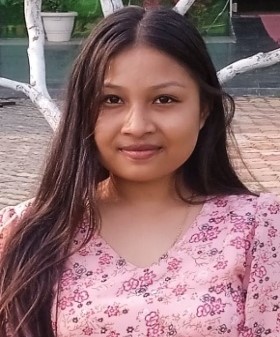The Department of English, Furkating College was founded in 1981. Since its establishment, the department has been trying to propagate humanitarian values and literature in society. Courses provided by the department currently are- B.A in English and Certificate Course in Functional English. The current intake capacity of the department is sixty students per year. The department also provides exposure to many co-curricular activities for the students. FOLIAGE (Forum of Literature Illuminating All Genres of English), the forum of the department, was formed in 2015. Since then the forum has taken many co-curricular activities among students including quiz competitions, observation of World Poetry Day, educational trips, literary discussions, book review programs etc. The forum conducts regular meeting sessions among the members to initiate various literary and social discussions. The department also maintains an e-journal.
STUDENTS INTAKE(MAJOR): 60
SYLLABUS 4 YEAR UNDERGRADUATE PROGRAM ON ENGLISH – 2023 👈 DOWNLOAD HERE
Dr. Debashis Baruah
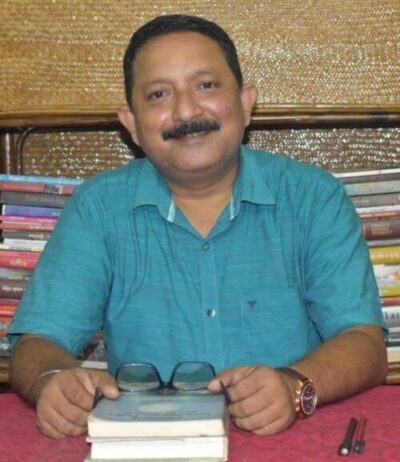
Associate Professor (HOD)
MA, Phd
Designation : ASSOCIATE PROFESSOR `
Department : ENGLISH
Contact No. : 9864414117
Email: baruahdev@rediffmail.com
Mrs. Indira Gogoi
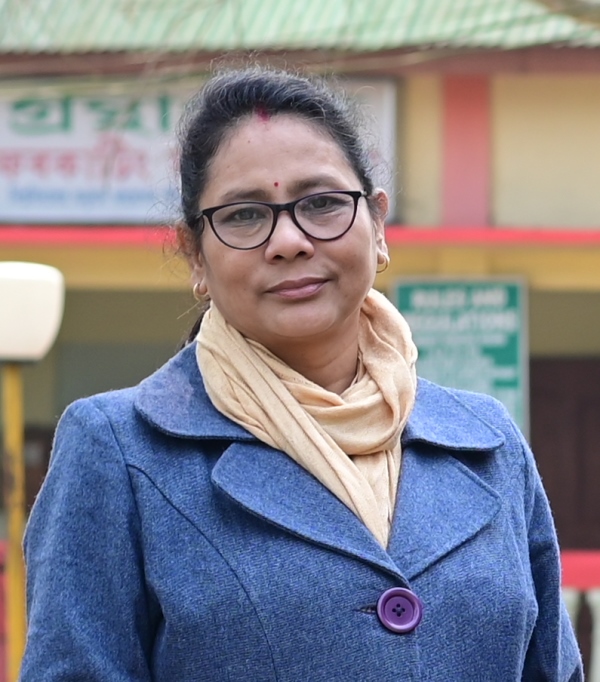
Associate Professor
MA, MPhil
Designation : ASSOCIATE PROFESSOR `
Department : ENGLISH
Contact No. : 9435515241
E-Mail : indiragogoi110@gmail.com
Dr. Rousonara Begum
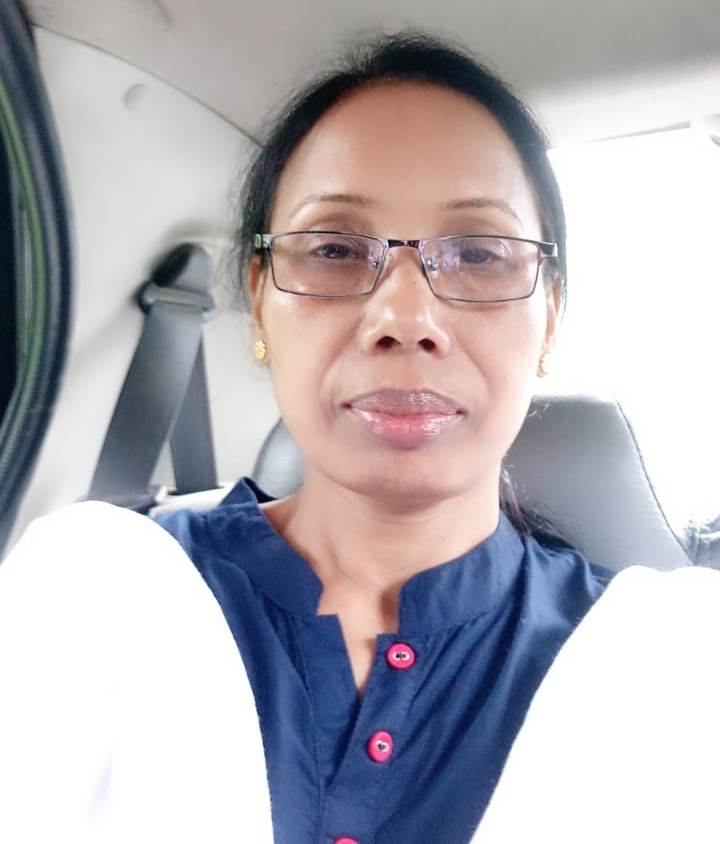
Assistant Professor
MA, MPhil, Phd
Designation : ASSOCIATE PROFESSOR
Department : ENGLISH
Contact No. : 9435833283
Email: rousonarab@gmail.com
Ms. Dharitri Saikia
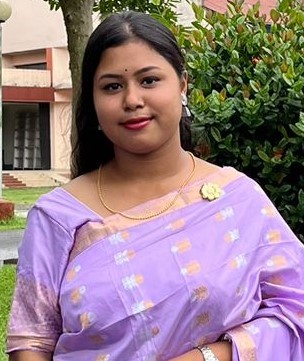
Assistant Professor
M.A
Designation :ASSOCIATE PROFESSOR
Department :ENGLISH
Contact No. :9707415411
Email: saikiadharitri809@gmail.com
E-JOURNAL
Website of the Journal: Click here 👈
ABOUT THE E-JOURNAL

Rank Holders of Furkating College in TDC Final Examination of Dibrugarh University
| Name | Major | University position | Year |
| Rishikanya Nath | English | 3rd | 2013 |
| Rajarshi Nath | English | 3rd | 2017 |
Programme Specific Outcomes (PSOs)
B.A. (ENGLIH)
- Students should be familiar with representative literary and cultural texts within a significant number of historical, geographical, and cultural
- Students should be able to apply critical and theoretical approaches to the reading and analysis of literary and cultural texts in multiple
- Students should be able to identify, analyze, interpret and describe the critical ideas, values, and themes that appear in literary and cultural texts and understand the way these ideas, values, and themes inform and impact culture and society, both now and in the
- Students should be able to write analytically in a variety of formats, including essays, research papers, reflective writing, and critical reviews of secondary
- Students should be able to ethically gather, understand, evaluate and synthesize information from a variety of written and electronic
- Students should be able to understand the process of communicating and interpreting human experiences through literary representation using historical contexts and disciplinary
- Students should be able to use English effectively in formal and informal situations.
- Students should be able to attempt creative writings
- Students should be able to develop verbal and non-verbal skills of communication
- Students should be able to make a career in different sectors
Course Outcomes (Cos)
- BA English (Core)
Semester I
CO 1: INDIAN CLASSICAL LITERATURE
Objective: To acquaint the students with the rich cultural heritage of ancient Indian
Literature.
Outcome: After completing this course, the learners shall be in a position to
understand and appreciate the rich Indian classical literary tradition,
including its distinctive aesthetic philosophies.
CO 2: EUROPEAN CLASSICAL LITERATURE
Objective: To acquaint learners with the great heritage of European classical
literature,
Outcome: After the completion of the course, the learners shall be in a position to
understand the source of Western literary paradigm.
Semester II
CO 3: INDIAN WRITING IN ENGLISH
Objective: To introduce the learners to Indian Writing in English from the colonial to
the postcolonial period. To make them understand the diversity of Indian
culture and tradition discussing various issues such as identity politics,
gendered differences, home, dislocation, language etc.
Outcome: After the culmination of this course, the learners shall be in a better
position to appreciate the diversity of customs and traditions in India,
would be able to map the intellectual trajectory from the pre-to post –
independence period, and get the feel of the advancement that Indian writers
in English are making, for which they are receiving plaudits, both at home
as well as abroad.
CO 4: BRITISH POETRY AND DRAMA: 14th TO 17th CENTURIES
Objective: To acquaint the learners with British poetry and drama from Chaucer to
Shakespeare in order to give them an impression of the spirit of the
Renaissance, thereby placing the Elizabethan period in a proper perspective.
Outcome: After completing this course, the learners would be in a position to
determine the influence of the European Renaissance on the works of the
Elizabethan authors, including Shakespeare.
Semester III
CO 5: AMERICAN LITERATURE
Objective: To introduce the learners to American literature, highlighting issues like
the reality or illusion of the Great American Dream, the transcendentalist
movement, the history of slavery in the South, the great economic
depression etc.in the context of American history and literature.
Outcome: After completion of this course the learners would get a feel of American
literature and they will be able to understand the poetics and politics of a
literature characterised both by liberal and reactionary ideals.
CO 6: POPULAR LITERATURE
Objective: To acquaint the learners with popular literature, such as crime thriller,
graphic fiction, children’s literature and so forth.
Outcome: After the completion of this course, it is believed that learners would be in a
position to appreciate the presence of a creative space and process that has
the potential to affect readers to a degree that high-brow literature cannot
achieve due to its propensity to target only a niche audience.
CO 7: BRITISH POETRY AND DRAMA: 17th AND 18th CENTURIES
Objective: To acquaint the learners with the experience of a whole gamut of feelings
that define a period and contradistinguishing it from another.
Outcome: After the completion of this course, learners will be in a position to
understand the ways in which English drama and poetry began to
emphasize on the importance of adhering to classical norms and forms.
Semester IV
CO 8: BRITISH LITERATURE: 18TH CENTURY
Objective: To acquaint the learners with the fundamental philosophical shift that
ushered in, in the wake of the culture of positivism that set in during this
period.
Outcome: After the completion of this course, learners will be in a position to
understand the spirit of the age, as well as the literature embodying this spirit..
CO 9: BRITISH ROMANTIC LITERATURE
Objective: To acquaint the learners with the spirit of the age.
Outcome: After completion of this course the learners would be in a position to know
and appreciate the values of a literature characterised by emotion, passion,
love towards nature, exerting of imagination and so forth in order to create a
thing of beauty, which would be a joy forever.
CO 10: BRITISH LITERATURE: 19TH CENTURY
Objective: To provide the learners a fascinating opportunity to immerse into the
fraught historical context determined by contradictory, oppositional drives
and processes.
Outcome: After completion of this course the learners will be in a position to
understand the philosophical shift that came about due to the crises of faith
pertaining to the culture of positivism that manifested its full presence during
the Victorian period. It is also hoped that they would be able to understand
concepts like utilitarianism, surplus value, Victorian prudishness, survival of
the fittest etc., and will be able to analyse it along these lines.
Semester V
CO 11: WOMEN’S WRITING
Objective: To introduce learners to women’s writing, and in doing so attempting to
underline the manner in which power operates to silence women from
articulating their views. Apart from that, the course would also try to
situate women’s writing in a space that transcends or upends the male
writing tradition through various (subversive) ways.
Outcome: The learners after completing this course, would be sensitised to gender-
related issues, and would be able to see things from the perspective of the Other.
CO 12: BRITISH LITERATURE: THE EARLY 20TH CENTURY
Objective: To chart the philosophical trajectories like symbolism, existentialism,
cubism, Dadaism, expressionism, nihilism etc. through early twentieth-
century texts, particularly novels and poetry.
Outcome: It is believed that the learners would benefit from this course in terms of
getting acquainted with concepts like stream-of-consciousness, Oedipus
complex, avant garde, gyre, interior monologue, among many others.
Semester VI
CO 13: MODERN EUROPEAN DRAMA
Objective: To read some of the select modern plays of Europe by placing the epochal
events of the period as the backdrop.
Outcome: It is hoped that the learners after completing this course will be in a
comfortable space to know Modern drama with its entire attendant
problematic.
CO 14: POSTCOLONIAL LITERATURES
Objective: This course introduces postcolonial literature to the learners focusing mainly on
such issues as language, identity, point of view, displacement, physical and mental
colonisation, Decolonisation, nationalism, fundamentalism, globalisation and
diaspora, colonial legacy, gender and sexuality, regionalism, ethnicity, genocide,
race, and so forth, and it will be discussed how such issues are expressed in the
literary texts.
Outcome: The learners on culmination of the course are expected to be acquainted with both
the texts and the contexts of the given period.
- BA English (Generic Elective)
Semester I
CO 1: ACADEMIC WRITING AND COMPOSITION
Objective: To prepare students for work in high level English courses in which research
writing is a requirement. It introduces basic research writing skills including:
conducting research, note taking, paraphrase, summary, direct quotation,
positioning, and MLA or APA style citation.
Outcome: By the end of the course, students will be able to demonstrate and apply knowledge
of basic essay structure, including introduction, body and conclusion; employ the
various stages of the writing process, including pre-writing, writing and re-writing;
employ descriptive, narrative and expository modes; demonstrate ability to write
for an academic audience; write concise sentences, etc.
Semester II
CO 2: MEDIA AND COMMUNICATION SKILLS
Objective: To introduce learners to media and communication skills. In this digital-visual
landscape, it is necessary to be equipped with knowledge and technical expertise
of new media. This course will enable learners with skills pertaining to mass
communication in all its manifestations.
Outcome: It is expected that this course will act as a beginner’s guide to media
communication. It will enable them to opt for a career in journalism, television or
digital media by continuing their study in this field in more rigorous terms in their
Postgraduate level.
Semester III
CO 3: LANGUAGE AND LINGUISTICS
Objective: To familiarise students with the structure, morphology, phonology, syntax,
semantics of a particular linguistic system, which is, English. The learners will get
to know about the deep structure of the system and study it in a synchronic mode.
Outcome: The learners will get familiarised with the science of the study of the English
language. This will enable them to unravel the morphology, phonological
dynamics of the language, thereby making them motivated in researching on a
scientific study of language.
Semester IV
CO 4: CONTEMPORARY INDIA: WOMEN AND EMPOWERMENT
Objective: This course will familiarise learners with gender issues related to its construction,
legislation, resistance and marginalisation in the pan-Indian context. The objective
of this course is to sensitise learners to the multiple forms of subjugation that
patriarch subjects women. It will also attempt to suggest strategies to resist or
subvert such strategic silencing by means of an alternative discourse –feminism –a
means to empower what Simone de Beauvoir ironically termed as the “second sex”.
Outcome: The learners will get acquainted with gender issues, including the politics of how it
is constructed, reinforced and sustained. They will get apprised of women’s
resistance against patriarchy through women’s movements, and well as understand
the silence of twice marginalised sections, like Dalit women and tribal groups.
- BA English (Discipline Specific Elective)
Semester V
CO 1: MODERN INDIAN WRITING IN ENGLISH TRANSLATION
Objective: This course aims to acquaint learners with the works of Indian writers working on
regional literature from the north to the south, from the west to the east.
Outcome: After completing this course, it is expected that learners will be in a position to
appreciate the literature of India as it exists in various regional languages. They
would be able to understand the political, social and economic factors affecting
people across regions and cultures.
CO 2: LITERATURE OF THE INDIAN DIASPORA
Objective: To introduce the learners to literature of the Indian diaspora keeping in view the
issues that haunt the writers who have settled abroad, despite being Indians in
terms of roots and emotional make-up.
Outcome: After completing this course, it is expected that learners will be in a position to
understand the complexity of living as hyphenated identities in a space which is
different from that of “home”. They will be in a better position to understand the
postcolonial condition of identities caught between the quest for a better life abroad
and the acknowledgement of the futility surrounding such a rootless mobility.
CO 3: LITERARY CRITICISM
Objective: To present an overview of major trends in literary criticism from the Romantic
period to the present and to introduce to the recent trends in criticism, particularly
feminist criticism.
Outcome: It is hoped that the learners will be in a position to understand the texts in terms of
the contexts, which could be purely aesthetic, historical, textual or political. They
will be able to read texts by adopting the ideologies of the different reading
processes.
CO 4: WORLD LITERATURES
Objective: To enable the learners to know about the form and content of texts those are part
of different spatialities.
Outcome: By the end of the course, the student will be able to identify and analyse a variety
of major works of world literature; compare and contrast writing styles and generic
forms from different periods and cultures; identify major themes of representative
poetic and fictional works, and trace the influence of one literature upon another.
Semester VI
CO 5: LITERARY THEORY
Objective: To acquaint learners with four relevant discourses or
theories. These are Marxism, Feminism, Poststructuralism, and Postcolonial
Studies.
Outcome: By the end of this course, the learners shall be in a position to know some of the
significant texts of discourses revolving around class, gender, power, language,
race, identity and so forth. They will be able to relate their reading of literature
through such theories, which would in turn facilitate their interpretive strategies.
CO 6: LITERATURE AND CINEMA
Objective: This course investigates relationships between two media, film and literature,
studying works linked across the two media by genre, topic, and style. It aims to
sharpen appreciation of major works of cinema and of literary narrative.
Outcome: The learners are expected to understand the elements involved in adapting texts to
film. They will demonstrate analytical skills in visual literacy and reading filmic
texts. Students will demonstrate a familiarity with ways of discussing and
evaluating films as reflections of cultures and source texts.
CO 7: PARTITION LITERATURE
Objective: The Partition was perhaps the most horrific event of the twentieth-century
subcontinent’s history. So, the objective of this course is to read literature that
captures the sense of the times. There will also be film screenings since cinema also
helps capture both the horror and the repercussions of these events.
Outcome: After the culmination of this course, the learners will be in a position to
comprehend the magnitude of the tragedy of partition and realise how the trauma
associated with it impinges on the victim’s daily lives and activities even in the
present. The historical fact transmuted by imagination tends to prove the validity of
literature in representing the truth of the human condition.
CO 8: TRAVEL WRITING
Objective: To read travellers’ accounts of places from the past to the present encompassing
writings of eminent travel writers from the medieval period to the present. The
course will attempt to underscore the problematic associated with the genre, such
as, the claims to authenticity of the narrativised events, the role of imagination, the
ethnocentric gaze, the element of wonder, and so forth.
Outcome: The learners would be in a position to understand the cultural dynamics of
narratives written by travellers. They will be able to appreciate the difference in
representation from the category of gender, religion and race. They will realise that
travel narratives are always already ideological in import, and hence they can only
be regarded as representations , rather than truth.
- BA English (Ability Enhancement Compulsory Course)
Semester I
CO 1: ENGLISH COMMUNICATION
Objective: To introduce students to the theory, fundamentals and tools of
communication and to develop in them vital communication skills which
should be integral to personal, social and professional interactions.
Outcome: It is hoped that after studying this course, students will find a difference in
their personal and professional interactions.
CO 2: ALTERNATIVE ENGLISH
Objective: To introduce students to select literary works of different genres and to enhance
their skill of the English language.
Outcome: It is hoped that after studying this course, students will be able to develop a taste
for English literature.
- BA English (Skill Enhancement Course)
Semester III
CO 1: ENGLISH LANGUAGE TEACHING (ELT)
Objective: To acquaint the learners with the methodologies of teaching English in classroom
situation and to acquaint them with the tools and strategies of ELT.
Outcome: The learners will be in a position to acquire skills pertaining to teaching English.
CO 2: SOFT SKILLS
Objective: This course provides the soft skills required mainly for professional achievements,
and in the process, many of the personal requirements of an individual can be
compiled with.
Outcome: it is expected that after completion of this course the learners will acquire soft
skills such as communication skills, work ethic, positive attitude, emotional
intelligence and other personal attributes crucial for success in business or career.
Semester IV
CO 3: CREATIVE WRITING
Objective: To acquaint the learners with the craft and technicalities of creative writing.
Outcome: It is hoped that this course would be beneficial for the learners to develop their skills in creative writing.
CO 4: BUSINESS COMMUNICATION
Objective: To give students a comprehensive view of communication, its scope and
importance in business, and the role of communication in establishing a favourable
outside the firm environment, as well as an effective internal communications
program.
Outcome: Students will learn how to enhance their business communication with technically
based media. This course will make them conversant with the basic forms, formats
and techniques of business writing so that they will be thoroughly prepared to take
part in real-world business fields. This course will also give them the latest
research information on language in general and the writing process specifically so
that they will become a highly confident and skilled writer. This course will
provide discussion of all relevant communicational theories so that they can apply
this knowledge to a myriad of different communicational tasks and genres.

